Independent Journalist Arrested After Sgt. Fahey Spit In His Face While Holding A Gun In His Hand
July 11, 2025 — Connecticut. An independent journalist and his cameraman are at the center of a growing controversy after their arrest outside the residence of Connecticut State Police Sergeant Bryan Fahey last Friday. The incident, now widely discussed online, has led to widespread allegations of official misconduct, retaliation against the press, and questionable actions by state and local officers.
Arrest Followed Routine Journalistic Inquiry
Seanpaul Reyes, an independent journalist operating the “Long Island Audit” channel, says he was investigating possible payroll abuse by Sgt. Bryan Fahey, who reportedly received more than $80,000 in overtime last year despite a base salary of roughly $130,000 and primarily desk-based duties. Responding to a tip, Reyes arrived at Fahey’s home with a billboard truck and a cameraman, intending to ask the sergeant direct questions.
"I knocked on his door, as journalists do when people avoid tough questions,” Reyes explained in a livestream recounting the event. Upon identifying himself as a journalist and asking about the overtime, Reyes says Fahey abruptly demanded they leave his property. Reyes and his cameraman immediately complied, turning to walk down the driveway.
Encounter Escalates: Firearm Drawn, Alleged Assault Recorded
Reyes, as he was leaving the property, Sgt. Fahey re-emerged from his house, wielding his department-issued firearm and speaking to 911. In a shocking escalation, as you can see (in a recently uploaded video on Reyes' YouTube Channel) Fahey pursued Reyes and his cameraman, cursing, yelling, and closing to within inches of Reyes’ face, all while brandishing the gun. Fahey then accused Reyes via 911 call of threatening to kill him—an accusation Reyes strongly denies.
Caught on video, Fahey spat in Reyes’ face during the confrontation—a move Reyes called “the ultimate violation and disrespect.” Reyes, disturbed but aware of the firearm present, refrained from physical retaliation and repeatedly asked officers to hold the sergeant accountable.
Police Response Sparks Claims of Double Standard
Within minutes, officers from the Groton Police Department arrived. Surveillance footage and Reyes’ own statements indicate that after reviewing some of the video, Groton officers arrested not Sgt. Fahey, but Reyes and his cameraman. Police reportedly justified the arrest by citing “breach of the peace,” eventually booking both men on charges of breach of peace, criminal trespassing, and voyeurism—a charge Reyes described as “completely fabricated and malicious.”
Police set Reyes’ bond at $75,000—escalated far beyond the initial $10,000—and placed a $50,000 bond on the cameraman. Both men spent hours in jail before being bonded out.
Despite the evidence—including video showing the spitting incident—Sgt. Fahey was not arrested or charged. Police suggested that spitting in someone's face only constitutes assault if it produces injury. Reyes noted the law in Connecticut harshly penalizes civilians who spit on officers, but in this case, the law was not applied equally.
Retaliation and the Suppression of Press Freedom?
Reyes and advocates allege the aggressive police response was a calculated act of retaliation by a public official unwilling to answer questions. Reyes, who has an ongoing federal lawsuit against Fahey tied to previous incidents, emphasized that he and his cameraman were engaged in constitutionally protected journalistic activity at the time: “There was nothing illegal about what I did. All I did was peacefully ask a question and leave when instructed.”
His livestream details being the subject of false statements to police and enduring humiliation and danger: “He wanted to provoke a reaction, so he could justify the use of deadly force. That’s why he spit on me while holding a gun.”
Furthering suspicions of retaliation, a protective order was issued barring Reyes from contacting, or even approaching, Connecticut State Police facilities.
Broader Implications and Calls for Accountability
Civil liberties advocates and press freedom organizations are rallying behind Reyes, citing his experience as a striking example of law enforcement overreach and a threat to the independence of the press. “If they can do this to a journalist, they can do it to anyone,” Reyes warned in his statement.
Reyes has vowed to pursue all legal avenues, including additional federal lawsuits and requests for public records, such as body camera footage and 911 transcripts. “There can be no accountability unless the public sees exactly what happened,” he said, announcing plans to release the unedited video of the incident.
As calls increase for the Connecticut State Police, the Groton Police Department, and state authorities to conduct independent investigations, many are watching whether those who enforce the law will be held equally accountable to it—or whether the events of that Friday mark a chilling escalation in hostility toward the freedom of the press.
For further information or to provide tips related to this case, please contact PD.News


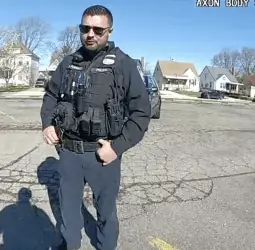
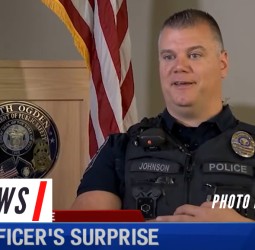


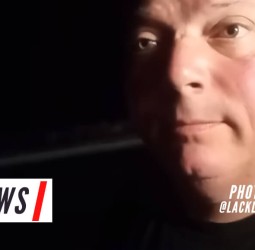
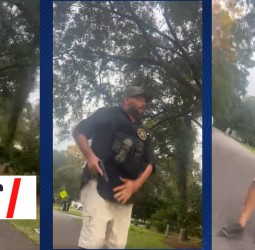

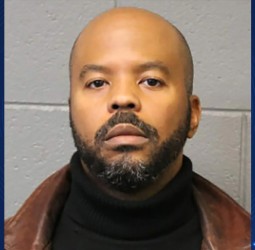
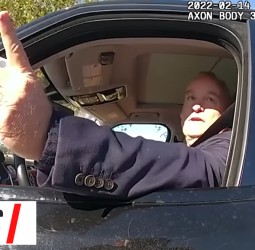
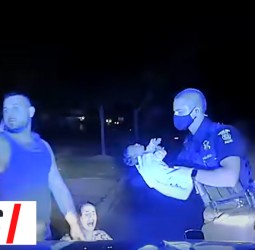
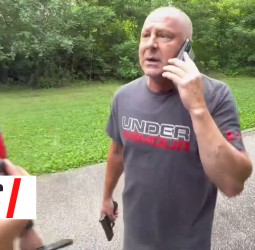

Recent Comment